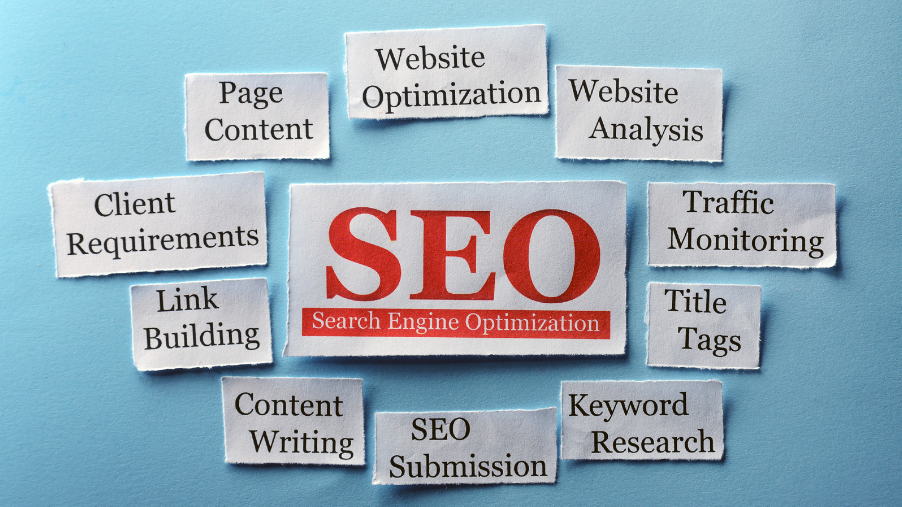Table of Contents
SEO is an inevitable part of any digital marketing plan, and it has come to stay. And why not? SEO best practices have helped digital brands remain relevant through the years.
However, when the discussion of SEO best practices arises, many quickly point out the use of high-ranking keywords, creating good content, and the effective use of backlinks. As much as these are essential to page optimization, the technical aspect of a page is equally important.
Formally termed technical SEO, it’s the architectural build of a website to allow Google crawlers smooth access, enabling a page to rank well on Google search results. Let’s examine this in detail.
What is Technical SEO?

Technical SEO focuses on improving the technological aspects of a page to allow it to rank well on Google search results. It’s a technique of making a website easy for search engine bots to crawl and comprehend a website.
Technical SEO is an on-page SEO strategy used alongside other approaches to get a page well ranked. Checking technical aspects of SEO will include; how fast a page loads, compatibility with different devices ( especially mobile phones), the security of a page, and more.
What Are the Main Elements of Technical SEO?
Website Speed

Nowadays, web pages must load quickly because people are impatient and do not like waiting too long for a page to load. According to data from 2016, more than half of mobile internet users will abandon a website if it does not load within seconds. People often become frustrated and visit another website if one is slow.
Website speed determines if a page will lose or gain traffic. Hence, it’s best to do a couple of important things like; enabling browser caching and optimizing the website’s pictures. Pictures are to be uploaded in a format that retains quality yet is quick to load. Additionally, videos and other content should be compressed. These are small measures, but combined, they can make a website work faster.
Responsiveness
A website must be optimized for mobile devices. This is a major one because more people use their smartphones to access the internet. As a result, websites that provide an excellent mobile browsing experience are prioritized by Google and other search engines. Fortunately, search engines such as Google have created mobile-friendly tests to aid in the optimization of your mobile website.
Responsive design also improves user experience (UX) across all devices; therefore, it’s a no-brainer in this mobile-first world to prioritize a web design that considers mobile devices. When building or revamping a page, don’t forget to test and utilize the site on various devices to identify and address any issues that may negatively influence the user experience.
Dead Links
We’ve already established that slow websites are inconvenient. People will see a 404 error page if they click on a link that leads to a non-existent page on a site. And this has a negative impact on such a website from the standpoint of visitors and the search engine bots that rank these pages.
Search engines despise finding these bad pages. Unfortunately, most websites have (at least) a few dead links, as a website is a never-ending work in progress — addition and removal of content is continuous. Given this, assessment is necessary to get rid of bad pages.
Security

A secure website is technically optimized. Making your website secure for users to protect their privacy is a must nowadays. There are a number of things you can do to make your website safer, but one of the most important is to use HTTPS.
HTTPS ensures that no one may intercept data exchanged between the browser and the website. As a result, if someone logs in to your site, their credentials are secure. To put HTTPS on your site, you’ll need an SSL in web hosting.
Because Google recognizes the importance of security, it has made HTTPS a ranking parameter — secure websites are ranked higher than their unsecured counterparts.
Content Structure
Structured data aids search engines in better understanding a website, content marketing, and even the brand. Well, the structure of a page tells search engines the kind of service offered.
The content on a well-structured website has good metadata, descriptive HTML headings, summaries of long-form content, and a concise definition of concepts. It has excellent categories.
Why is Technical On-page Optimization Very Important to Google?
Google basically wants to provide users with the best possible results for their chosen keywords, and technical SEO is a means to ensure that a website complies. Google users would be more inclined to direct their search queries elsewhere if Google emphasized webpages that were slow, nonresponsive, or difficult to navigate.
Well, Google, just like any other business, wouldn’t want that. So, Google’s crawlers will give a website an extra boost in search ranks if it loads quickly, has no dead links, and is safe. The reasons are self-evident. Putting down a solid technological design for a website will go a long way toward pleasing and delighting your visitors.
How Does Technical SEO Affect User Experience?

Technical SEO impacts user experience positively. A page that loads quickly is a delight to every user. It means information can be accessed promptly. A secure page which is also an element of technical SEO, assures users that they are safe while accessing a page. And in this world of mobile devices, a technical SEO guarantees every user a smooth experience despite the type of device they use.
There are no shortcuts to achieving a technically optimized website. A page owner must meticulously work on all elements before Google can rank the page. And this isn’t just to please Google search engines.
It’s also an approach to ensure users have a smooth experience while using the internet. So, it’s an approach with a twin goal — to give search engines what it needs to rank a page well and give users a good experience. The beauty is that both goals are the same. Efforts to reach one goal are equivalent to working on the other.
Summary
In summary, technical SEO is important in the search engine optimization process. It’s a key factor that determines how well a page rank in search results. Technical SEO is concerned with the technological aspects of a page, such as the loading speed, ease of access to information on a page, security, and arrangement of the content. Hiring the SEO consultant with the best affordable SEO Packages will help you fix the technical SEO issues and improve your ranks.
When all these parameters are available, search engine bots will rank such a page for users. And for such pages to be ranked, it means users will have a good experience with them.
To optimize a page technically, some things to keep in mind are; use good quality pictures that take less space ( same applies to videos), use good security protocol, categorize and give proper information to content on the page ( structure a page well), delete dead links, and most importantly design a page to be responsive to many types of devices( especially mobile devices).
Author Profile

- Guest Blogger & Outreach Expert - Interested in Writing Blogs, Articles in Business Niche | News Journalist By Profession in the United Kingdom
Latest entries
 BusinessFebruary 17, 2026Why Online Shops Need a Fulfilment Centre?
BusinessFebruary 17, 2026Why Online Shops Need a Fulfilment Centre? LawJanuary 9, 2026Emily Windsor On The Judgment Calls Barristers Make Daily
LawJanuary 9, 2026Emily Windsor On The Judgment Calls Barristers Make Daily TravelJanuary 7, 2026Key Considerations When Installing Temporary Barriers for Roadworks
TravelJanuary 7, 2026Key Considerations When Installing Temporary Barriers for Roadworks BusinessNovember 21, 2025A Practical Guide to Using LMS Platforms for Better Onboarding
BusinessNovember 21, 2025A Practical Guide to Using LMS Platforms for Better Onboarding





